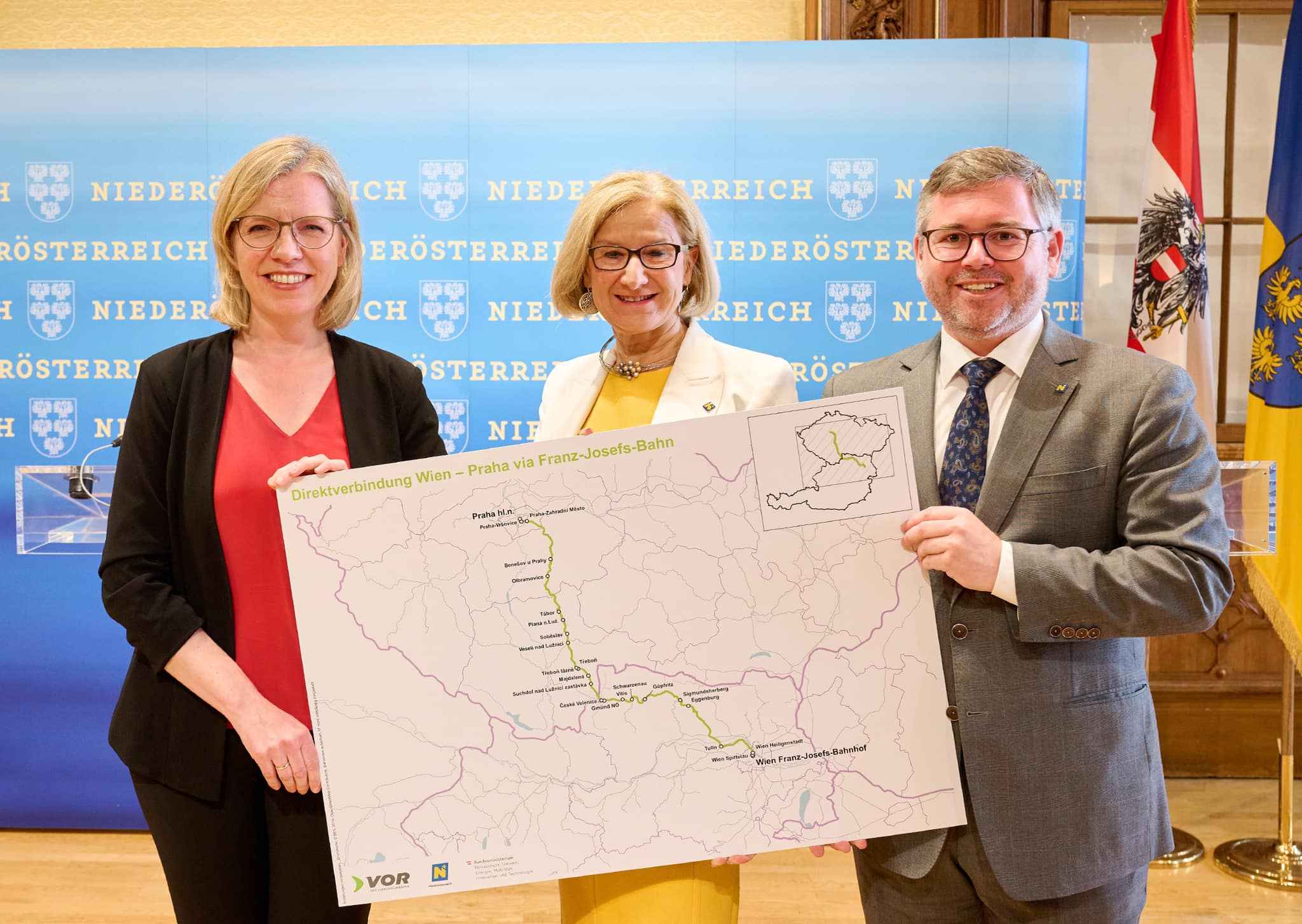Thessaloniki gets ready for its metro launch in November
The underground rapid transit lines have been under construction for almost two decades due to various project delays
 TheMayor.EU logo
TheMayor.EU logo The announcement came just as authorities presented their plan for a Vienna-Prague direct train route
Yesterday, the Austrian Federal Minister for Climate Action, Leonore Gewessler, and the Governor of the state of Lower Austria, Johanna Mikl-Leitner, announced that a direct train connection from Vienna to Prague will be available as soon as this December. The move is part of the rail revival, happening across Central Europe, as more and more countries are revising their cross-border passenger rail connections.
The new route will be called ‘Silva Nortica’ and will take a projected five hours. This connection could become part of the Vienna-Prague-Berlin line, pledged in 2021. The ‘Silva Nortica’ will pass through Lower Austria, showcasing the country’s vineyards and forests and cross the border at Gmünd.
According to Minister Gewessler, in shorter and mid-distance trips, passengers can take full advantage of the climate-friendly and cost-effective train and public transport services. However, cross-border train rides can be quite pricy, so to boost interest, she added that from 2023, cross-border train tickets will be exempt from a sales tax.

L-R: Minister for Climate Action, Leonore Gewessler,
Governor of the state of Lower Austria, Johanna Mikl-Leitner,
Source: Governor Johanna Mikl-Leitner on Facebook
The direct train line from Vienna to Prague will start operating again for the first time in 26 years. Furthermore, it will take advantage of the Franz-Josefs-Bahn infrastructure. The Franz-Josefs-Bahn was a piece of rail infrastructure connecting Vienna with Egar, located near Karlovy Vary in the Czech Republic. The line was constructed in the mid-19th century, during the reign of Emperor Franz Joseph I of the Austro-Hungarian Empire.
Similar developments have been sprouting across the European Union, as governments are embracing trains as a way to move goods and people sustainably. This includes projects like the Vienna-Brno direct line, the Luxembourg-Brussels fast train, as well as the Berlin-Szczecin line, which is supposed to reinvigorate rural communities in Brandenburg.
To a large extent, the train revival has been spurred on by the European Year of Rail in 2021, which set the target of doubling high-speed rail traffic by 2030 and tripling it by 2050. In fact, connecting large urban centres in the EU with rail would create a quasi-public transport system, according to Minister Gewessler, that would fuel suitable mobility across the bloc.

The underground rapid transit lines have been under construction for almost two decades due to various project delays

Now you can get your wine in Talence by paying directly in Bitcoin

That’s because the state has to spend money on updating the railway infrastructure rather than subsidizing the cost of the popular pass

Rethinking renewable energy sources for the urban landscape

The examples, compiled by Beyond Fossil Fuels, can inform and inspire communities and entrepreneurs that still feel trepidation at the prospect of energy transition

Now you can get your wine in Talence by paying directly in Bitcoin

The 10th European Conference on Sustainable Cities and Towns (ESCT) sets the stage for stronger cooperation between the EU, national and local level to fast track Europe's transition to climate neutrality.

At least, that’s the promise made by the mayor of Paris, Anne Hidalgo

The underground rapid transit lines have been under construction for almost two decades due to various project delays

At least, that’s the promise made by the mayor of Paris, Anne Hidalgo

Hostal de Pinós is located in the geographical centre of the autonomous region

Despite its church-y name, the district has long been known as the hangout spot for the artsy crowds

Urban dwellers across the EU are having a say in making their surroundings friendlier to people and the environment.

Forests in the EU can help green the European construction industry and bolster a continent-wide push for architectural improvements.

Apply by 10 November and do your part for the transformation of European public spaces

An interview with the Mayor of a Polish city that seeks to reinvent itself

An interview with the newly elected ICLEI President and Mayor of Malmö

A conversation with the Mayor of Lisbon about the spirit and dimensions of innovation present in the Portuguese capital














